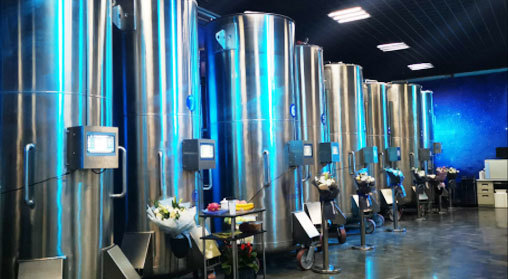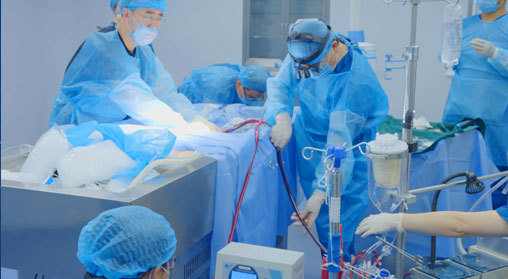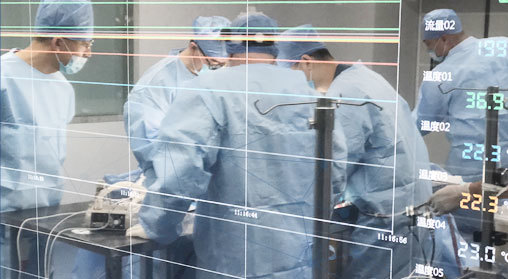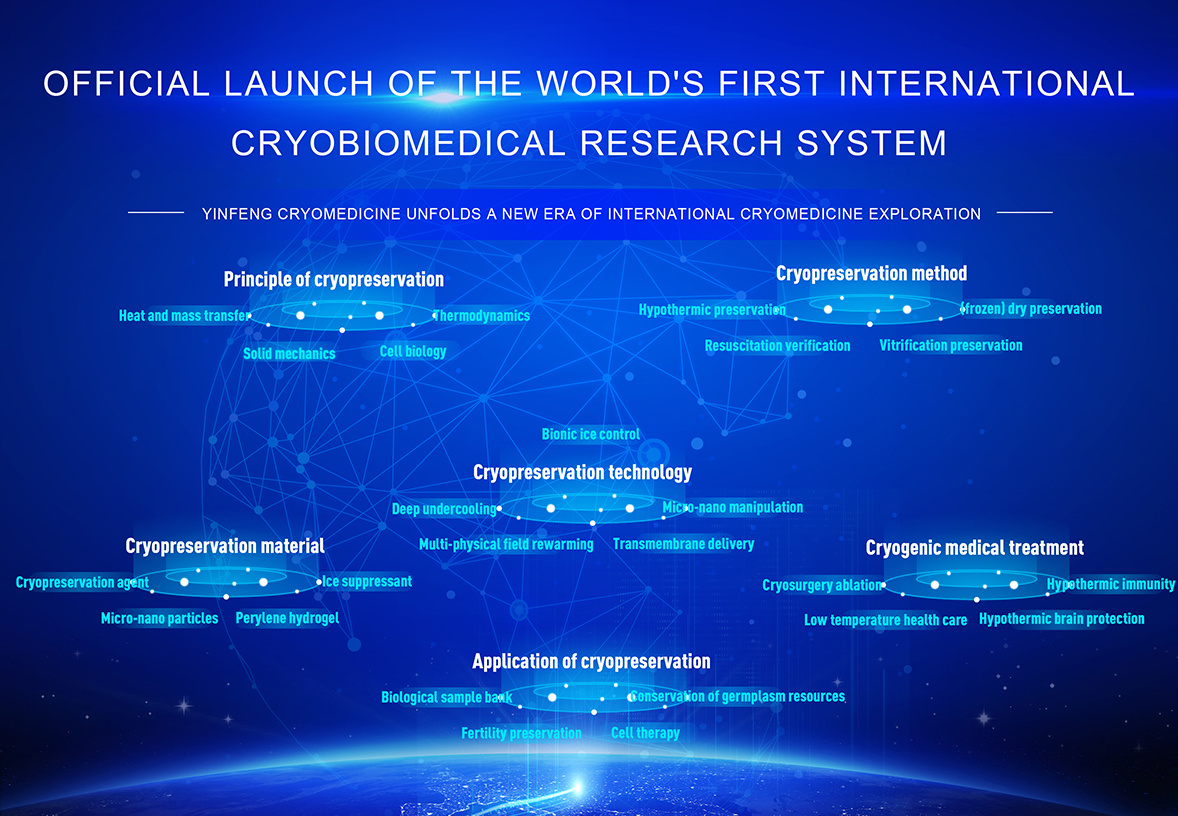

YINFENG LIFE EXTENSION PROGRAM
The Yinfeng Life Extension Program is a comprehensive and cutting-edge life science research project initiated and implemented by Shandong Yinfeng Life Science Research Institute, which is in line with scientific and technological ethics, future-oriented, and highly prospective and challenging. The project involves cryogenic biomedicine, clinical medicine, regenerative medicine, artificial intelligence, brain-computer interface, jurisprudence, ethics, psychology and other multidisciplinary fields, aiming to promote the high-quality development of new quality productive forces through the systematic scientific and technological research on the cryopreservation and rewarming technology for large-size intact living organisms and the cross-fusion of different disciplines to make unremitting efforts to realize the continuation of human civilization.



Research on Cryopreservation and Rewarming Technologies for Tissues and Organs
This research focuses on applying advanced cryomedical technologies to preserve and rewarm human-derived tissues and organs, including skin, heart valves, tendons, blood vessels, ovaries, severed fingers, and pancreas islets and explores the use of 3D bioprinting technology to develop biomaterials and artificial tissues and organs capable of substituting for damaged or missing tissues or organs, and to realize clinical transplantation applications.
Research on Cryopreservation and Rewarming Technologies for Intact Organisms
This research integrates cryobiology, cryomedicine, molecular biology, and clinical medicine to study whole-body cryopreservation while maintaining structural integrity., which systematically explores functional recovery of tissues, organs, and systems after rewarming.
Short-term significance
Extend the current window of time for organ preservation/transfer during transplantation;
Promote the construction of organ banks;
Promote the research level of specific disease models in basic medicine
from two-dimensional localisation to three-dimensional systematisation.
Medium and Long-term significance
Medium-term significance:Provide large-scale models and high-quality preservation
solutions for future medical breakthroughs against currently unsolvable diseases;
Promote socially adaptive advances in law and ethics
Long-term significance:Expand the spatial-temporal boundaries of human civilization.
Foster the sustained development and continuation of human civilization.
In 2017, Shandong Yinfeng Life Science Research Institute accomplished the first case of cryopreservation of a complete organism in Asia. They pioneered the application of minimally invasive dual-channel technology in the project and developed the world's first temperature-controlled cooling device capable of continuously lowering temperatures to -190°C, filling multiple technological gaps on a global scale.
As of 2026 Nationwide
Join Yinfeng Life Extension Program
Member and volunteer data
Member
Volunteers
Involved provinces and cities
National by 2026
Join Yinfeng Life Continuation Program
Member and Volunteer Data
Member
Human Cryopreservation Volunteers
Involving provinces and cities
Domestic Cryobiomedical Cooperation Institutes

Tsinghua University

University of Science and Technology of China

Zhejiang University

University of Shanghai for Science and Technology

Shanghai Jiao Tong University

Shangdong University

Ocean University of China

Central South University

Anhui Medical University

Chinese Academy of Sciences

Chinese Refrigeration Society

Chinese People's Liberation Army Naval General Hospital

Center for Excellence and Innovation in Brain Science, Chinese Academy of Sciences

Institute of Physics and Chemistry Technology, Chinese Academy of Sciences

Shandong University Qilu Hospital

Shandong Academy of Sciences

Shandong Medical Ethics Society

Shandong Association of Refrigeration
As of 2026 Worldwide
Participate in human body cryopreservation
Volunteer data
Program participating members
Human body cryopreservation volunteers
International Cryobiomedical Cooperation Institutions

China

USA

USA

USA

USA

USA

U.K.

U.K.

France

France

Australia

Australia

Switzerland

Spain

Establish the world’s first international cryobiomedical system
Involving
11
major scientific research projects
30
subdivided items





